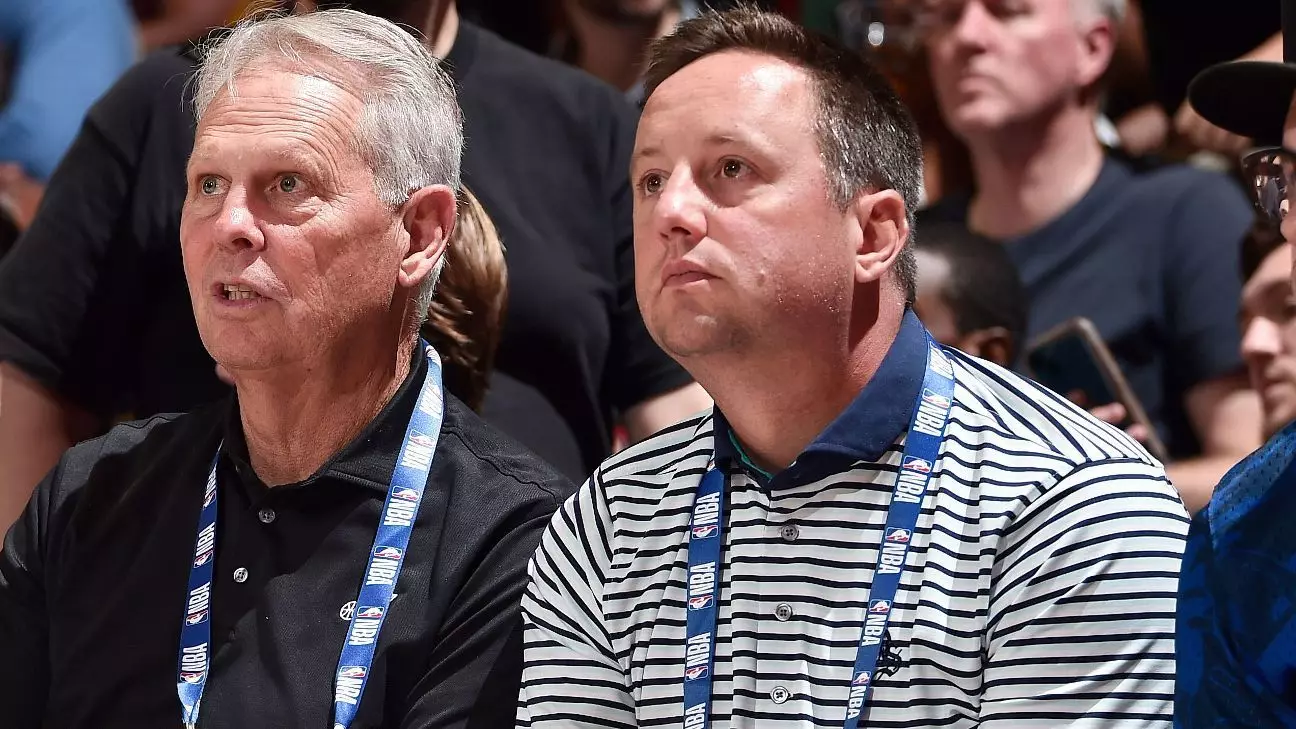Elevating the Game: Austin Ainge’s Role in Reshaping the Utah Jazz
When I think about basketball, it’s more than just a game to me. It’s a blend of strategy, passion, and teamwork that brings out the best in players and fans alike. That’s why the recent changes in the Utah Jazz organization have caught my attention. The hiring of Austin Ainge as the new president of basketball operations is a significant move, signaling a fresh start for the team. It also brings an exciting opportunity to witness how legacy and innovation can come together to create something extraordinary.
Growing up, I always admired teams that managed to reinvent themselves despite challenges. The Jazz are currently at such a crossroads, looking to bounce back from a tough season. With Austin Ainge at the helm, there’s a palpable sense of anticipation in the air. As the son of Jazz CEO Danny Ainge, Austin isn’t just stepping into big shoes—he’s bringing his own unique vision and experience to the table. This combination of family heritage and modern basketball acumen promises to bring about an exciting evolution for the Jazz.
It’s not every day you see such a dynamic shift happening within a franchise, and as someone who loves following these stories, I’m eager to see how it unfolds. The Jazz are making deliberate moves to stabilize and grow under Austin’s leadership, starting with extending head coach Will Hardy’s contract. Such decisions reflect a commitment to building a cohesive and forward-thinking organization that can withstand the trials of competitive sports.
Key Takeaways
- Austin Ainge brings 17 years of experience with the Boston Celtics to his new role with the Utah Jazz.
- His appointment represents both legacy and innovation within the Jazz organization.
- The focus is on building a cohesive team culture and fostering young talent for long-term success.
Experience That Counts
Austin Ainge’s journey through the NBA is nothing short of impressive. After spending 17 years with the Boston Celtics, he has developed an acute understanding of what makes teams tick. Starting as a G League coach and working his way up to assistant general manager, Austin has seen firsthand the intricacies of player development and team strategy. His time with the Celtics has been marked by consistent playoff appearances, showcasing his ability to contribute significantly to team success.
The Utah Jazz have had their share of struggles recently, with last season being particularly challenging. However, Austin’s extensive background positions him well to guide them through this transformative period. He knows what it takes to build a championship-caliber team, having learned from some of basketball’s brightest minds. His expertise will be crucial as he works towards reviving the Jazz’s competitive edge and aligning them with their long-term goals.
Vision for the Future
Austin Ainge is not just stepping into this role; he’s embracing it with enthusiasm and ambition. He has expressed a strong desire to transform the Jazz’s fortunes by fostering a culture rooted in teamwork and selflessness among players. His entire life has been intertwined with basketball, giving him unique insights into team dynamics and chemistry—elements essential for cultivating a winning mentality.
The challenges ahead for Austin are significant but not insurmountable. Unlike his past experiences with the Celtics, where success was more established, the Jazz present a different landscape. They need not only talented players like Lauri Markkanen but also an infusion of young prospects ready to take on pivotal roles. Austin’s knack for talent evaluation will be critical as he seeks to maximize these assets and steer Utah toward sustained competitiveness.
Ownership and Front Office Dynamics
The partnership between Ryan Smith and Austin Ainge is indicative of evolving trends in NBA ownership and management. In this era, franchises are leaning towards innovative leadership models that prioritize fresh ideas and energetic approaches over traditional norms. Ryan Smith’s belief in Austin as a “next, young executive stud” underscores this shift toward identifying potential rather than adhering strictly to conventional methods.
This progressive mindset will be vital as the Jazz navigate complex decisions related to drafts and free agency. Austin Ainge’s rich pedigree places him at a strategic advantage when it comes to shaping not just player rosters but also broader organizational philosophies. His ability to integrate modern analytics with traditional evaluative methods will be key in maintaining an agile front office capable of adapting swiftly in this fast-paced league.
Building Toward Success
Taking charge of an NBA team is never without its hurdles, especially given Utah’s recent performance woes. Having landed only the fifth overall pick despite lottery hopes adds complexity to their rebuilding efforts. Yet, Austin Ainge’s strategic approach offers a roadmap for overcoming these challenges by fostering coherence among Utah’s youthful roster while incorporating seasoned leadership where needed.
Despite these obstacles, there’s an overarching sense of optimism surrounding Austin’s appointment. His profound understanding of basketball dynamics provides a solid foundation upon which he plans to heal past wounds and drive future success for the Jazz. With his vision geared towards creating an inclusive and disciplined organizational culture, there’s hope that brighter days are indeed on the horizon for this historic franchise.
Final Thoughts
For those who love basketball or simply appreciate stories of transformation within sports franchises, watching how Austin Ainge reshapes the Utah Jazz will be fascinating—and perhaps even inspiring—to behold. His blend of legacy insight coupled with innovative strategies holds promise not just for immediate improvements but also sustainable growth over time.
As fans eagerly anticipate what’s next under Austin’s leadership tenure—one thing remains clear: The Utah Jazz are poised for an exciting new chapter defined by resilience determination creativity—and above all—a commitment towards excellence both on off-court endeavors alike! So stay tuned because this journey promises plenty twists turns triumphs along way!
Austin Ainge
Utah Jazz
NBA management
basketball strategy
team building


Leave a Reply